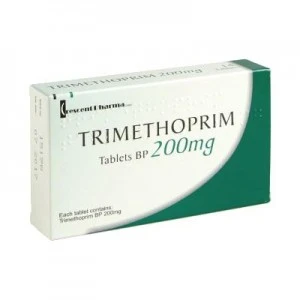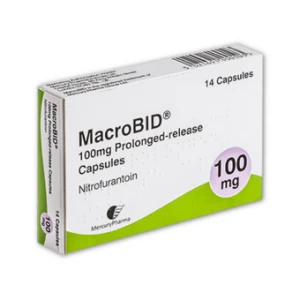What is Trimethoprim Used For?
There are many different types of medication available, suitable for tackling all sorts of ailments, from obesity and smoking addiction to bacterial vaginosis and cystitis. Some treatments can even be used to combat multiple medical conditions.
Trimethoprim is one such example. A strong antibiotic, it is licensed for the treatment of a broad spectrum of conditions. But exactly what is Trimethoprim used for?
In this article, we’ll discuss the various uses of the medication, while outlining its efficacy and how to take the treatment. Let’s get started.
What is Trimethoprim Used For?
Trimethoprim is an antibiotic typically used for the treatment and prevention of urinary tract infections (UTIs) such as cystitis. It can also treat other conditions, such as chest infections and acne. The medication is available on prescription upon assessment by a doctor or clinician.
Trimethoprim works by inhibiting the growth of bacteria responsible for causing cystitis. It does this by preventing the bacteria from producing folic acid, a vitamin that bacteria require for survival. For this reason, long-term use of trimethoprim may cause low folic acid blood levels in some patients. It is essential to complete your course of antibiotics to prevent the infection from recurring.
At Prescription Doctor, we only prescribe Trimethoprim for the treatment of cystitis.
Is Trimethoprim Effective for UTIs?
Yes, Trimethoprim is effective for treating UTIs. Clinical trials have shown cure rates ranging from 90% to 100% for uncomplicated cystitis, the most common type of UTI. Most people will notice an improvement in their cystitis symptoms within a few days of taking the medication. For more information on how quickly the treatment works, please refer to our dedicated article.
Trimethoprim has been studied for more complicated infections, too. Research comparing 7-day courses of trimethoprim with ciprofloxacin for treating pyelonephritis (kidney infections) found both antibiotics worked equally well, with similar outcomes for patients.
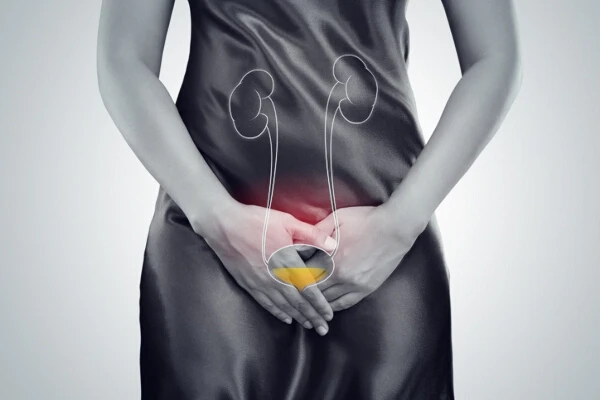
Although Trimethoprim works well for most UTIs, it's worth knowing about some potential risks. Some research has shown that the medication may be linked to an increased risk of acute kidney injury and high blood potassium levels compared to other antibiotics.
A large UK study of over 178,000 older adults found that trimethoprim was associated with a 72% increased risk of acute kidney injury and a 127% increased risk of hyperkalaemia (high potassium) compared to amoxicillin.
As a result, alternative treatments such as nitrofurantoin may be more suitable in some situations, which we also offer at Prescription Doctor.
Understanding Cystitis
Cystitis is a UTI that affects the bladder. It is more common in women than men because women have a shorter urethra, the tube where pee passes out of the body, so bacteria can easily be spread from the bottom or during sex to the urethra.
Cystitis is commonly caused by the bacteria Escherichia coli (E.coli), but there are other causes, like:
- interstitial cystitis
- certain medications
- catheter use
- chemicals found in perfumed soap
- underlying medical conditions (diabetes, kidney stones, enlarged prostate)
Signs of Cystitis
Recognising the signs of cystitis early can help you access treatment quickly and prevent the infection from worsening. The infographic below shows the most common symptoms you might experience:
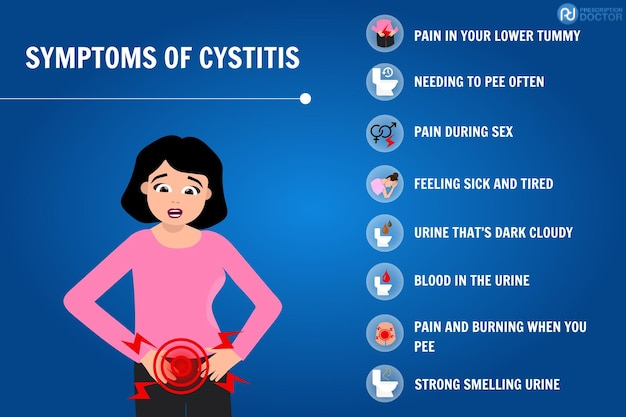
How to Stop Cystitis
Cystitis can be a recurring problem; however, there are certain actions you can take to stop it from returning. These include:
- wiping from the front to the back after going to the toilet
- urinating as soon as you can after having sex
- drinking plenty of water throughout the day
- avoiding using scented soaps, bubble baths or talcum powder
- washing your skin outside the vagina with water before and after sex
- having a shower instead of a bath
- avoiding spermicide with condoms or spermicide
- emptying your bladder fully when urinating
- limiting the amount of alcohol or coffee you drink
- using cranberry products like juice
For more information on how to prevent cystitis, please refer to our dedicated article.
Trimethoprim UTI Tablets
- Effectively treats cystitis
- Short course of treatment
- No extra cost
Trimethoprim Dosing for UTIs
According to the NHS, the usual dose of Trimethoprim to treat urinary tract infections is 200mg twice a day. How long you'll need to take trimethoprim depends on several factors, including the severity of your infection, its location, your age, whether you're male or female, and any other health conditions you may have.
Here's a general guide to treatment duration:
- Women with straightforward UTIs: Usually take a 3-day course of treatment
- Men and pregnant women with straightforward UTIs: Usually take a 7-day course of treatment
- People with severe or complicated UTIs, or those with a catheter: Usually take a 14-day course of treatment
- Men with a UTI causing prostate swelling (prostatitis): May need treatment for 4–6 weeks
- People taking it to prevent UTIs: May need to take it for at least 6 months
How Do You Take Trimethoprim?
Usually, you’ll take Trimethoprim twice a day to treat cystitis, once in the morning and once in the evening. If you’ve been prescribed the medication for other reasons, you may need to alter your dosing schedule accordingly.
For example:
- If you are taking Trimethoprim to prevent an infection, it’s recommended that you take it at bedtime.
- If you’ve been prescribed Trimethoprim to treat cystitis that occurs after sex, take a single dose within 2 hours of intercourse.
Do I Take Trimethoprim With or Without Food?
You should swallow trimethoprim tablets whole, accompanied by a glass of water. The good news is you can take it with or without food, whichever suits you best. That said, if trimethoprim makes you feel sick or gives you an upset stomach, it's worth taking it with food or milk.
Taking Trimethoprim with a meal or snack can help alleviate stomach discomfort and make the treatment more tolerable. If you do take it with food, try to stick to simple, bland meals and avoid rich or spicy foods, as these can sometimes exacerbate nausea.
How Long Should I Take Trimethoprim For Cystitis?
Several factors can affect the duration of trimethoprim treatment for cystitis. These include:
| Who? | Course duration |
|---|---|
| Women | 3 days |
| Men and pregnant women | 7 days |
| Men and women (to prevent a UTI) | 6 months |
It's essential to complete the full course of trimethoprim, even if you're feeling much better after a couple of days. Stopping early can allow bacteria to survive and start multiplying again, which means the infection may return and be more difficult to treat in the future.
Frequently Asked Questions
Do you have questions about Trimethoprim? We've answered the most common queries below, covering everything from what it treats to potential interactions with alcohol and the contraceptive pill.
What Does Trimethoprim Treat?
Trimethoprim is an antibiotic used in the treatment and prevention of urinary tract infections (UTIs), such as cystitis. Unlike sachets, the drug can be used to treat cystitis in men. Occasionally, the medication is also used to treat other types of infections, such as chest infections and acne.
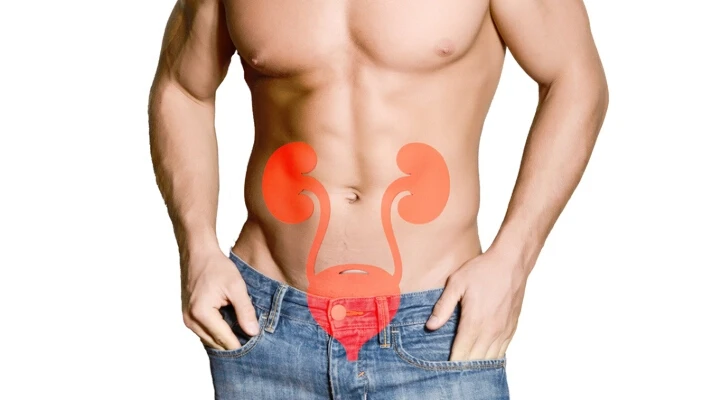
At Prescription Doctor, we only prescribe Trimethoprim for cystitis. If you need medication for other infections, consult your GP or healthcare provider, who can assess your symptoms and prescribe the most suitable medication.
Can I Take Trimethoprim for Chest Infections?
Yes, you can take Trimethoprim for certain chest infections, particularly those that respond to this type of antibiotic. If you have a chest infection, consult a GP or other healthcare provider to assess your symptoms and receive a prescription for the appropriate antibiotic for your specific situation.
Please note that at Prescription Doctor, we only prescribe Trimethoprim through our service for the treatment of cystitis.
Can Trimethoprim Treat Chlamydia?
No, Trimethoprim can’t be used to treat chlamydia. This is because chlamydia is a sexually transmitted infection (STI) that is not affected by trimethoprim’s mechanism of action. Clinical trials have shown that trimethoprim is extremely ineffective in the treatment of chlamydia when compared to drugs like oxytetracycline.
Instead, Prescription Doctor would recommend medications such as Doxycycline to treat chlamydia. You can also purchase a testing kit if you believe you may have the infection and but are uncomfortable with the idea of visiting a GP or sexual health clinic.
Are There Alternatives to Trimethoprim?
Mild cases of cystitis can often be treated effectively at home with painkillers, like paracetamol or ibuprofen, and over-the-counter cystitis relief sachets. At Prescription Doctor, we offer a range of alternative cystitis treatments, including:
- CanesOasis Cystitis Relief sachets contain 4g of sodium citrate, a type of salt that changes the pH of your urine, making it more alkaline. Doing so helps alleviate the stinging and discomfort associated with cystitis. The sachets have a cranberry flavour and are mixed with water to make a drinkable solution. Most people experience relief within 48 hours. This treatment is not suitable for men with cystitis.
- Nitrofurantoin is an antibiotic that's often the first-choice treatment for UTIs in the UK. It works by damaging bacterial DNA and stopping bacteria from growing. What makes nitrofurantoin generally the preferred option is that bacteria are much less likely to become resistant to it compared to trimethoprim.
Is Nitrofurantoin Better than Trimethoprim for Treating Cystitis?
A study comparing the effectiveness of Nitrofurantoin and Trimethoprim for uncomplicated cystitis found that the infection was cleared in 79% of patients treated with Trimethoprim and 84% of those treated with Nitrofurantoin. The researchers concluded that a 5-day course of Nitrofurantoin was clinically equivalent to a 3-day course of Trimethoprim for treating acute, uncomplicated cystitis in women.
Nitrofurantoin (Macrobid) UTI Antibiotics
- Kills bacteria
- Short course treatment
- Eligible for next-day delivery
Nitrofurantoin is becoming the preferred treatment method for UTIs due to its low risk of bacterial resistance. Indeed, clinical studies have shown that nitrofurantoin is a suitable alternative to Trimethoprim, the former first-line defence against cystitis.
Discreet Support You Can Rely Upon
At Prescription Doctor, we understand that dealing with a medical condition such as cystitis can be a potentially embarrassing experience. That’s why we’ve made it our mission to take the hassle out of healthcare and make it easier to obtain the treatment you need.
With us, there’s no need for a face-to-face appointment, just a simple online medical questionnaire that you can complete at any time from the comfort of your own home. Our experienced clinicians will then review your information and approve the treatment if it’s suitable for your circumstances. If not, an alternative may be suggested.
Orders approved before 3 pm on a weekday are eligible for next-day delivery, providing you with fast access to your medications and a tracking link to monitor progress. Everything dispatched from our General Pharmaceutical Council-registered dispensing pharmacy is placed in plain packaging that contains no information about its contents, ensuring total discretion at all times.
Providing medication is just part of our service; however, we take a holistic approach to healthcare that encompasses all aspects of your recovery journey. From answering questions such as “What is Trimethoprim used for?” to offering essential information on the prevention and treatment of cystitis, we have you covered.
Ready to get started? Begin your Trimethoprim consultation with Prescription Doctor today.
Sources
- NIH (2022): Management of uncomplicated urinary tract infections.
- NIH (2011): Nitrofurantoin Compares Favorably to Recommended Agents as Empirical Treatment of Uncomplicated Urinary Tract Infections in a Decision and Cost Analysis.
- JAMA (2007): Short-Course Nitrofurantoin for the Treatment of Acute Uncomplicated Cystitis in Women.
- Clinical Infectious Diseases (2011): International Clinical Practice Guidelines for the Treatment of Acute Uncomplicated Cystitis and Pyelonephritis in Women: A 2010 Update by the Infectious Diseases Society of America and the European Society for Microbiology and Infectious Diseases.
- BMJ (2018): Trimethoprim use for urinary tract infection and risk of adverse outcomes in older patients: cohort study.
- Annals of Pharmacotherapy (2017): A Seven-Day Course of Trimethoprim-Sulfamethoxazole May Be as Effective as a Seven-Day Course of Ciprofloxacin for the Treatment of Pyelonephritis.
- NHS (2024): Trimethoprim: antibiotic to treat bacterial infections.
- NIH (2022): Trimethoprim Sulfamethoxazole.
- PubMed (1984): A comparison of oxytetracycline and trimethoprim in the treatment of Chlamydia trachomatis urethritis.
Authored By

Sam Jeans
Medical Content WriterPublished on: 15/08/2024 Re-Published on: 12/11/2025
Reviewed By

Mohamed Imran Lakhi
MPharm - Lead PharmacistReviewed on: 12/11/2025
© 2013 - 2026 Al Muhsineen Limited. All Rights Reserved. Registered Pharmacy: 34 Halliwell Road, Bolton BL1 8RL. Registered Office: 254 First Floor, Shearbrow, Blackburn, England, BB1 8DS

